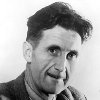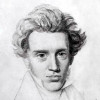“ If man clearly discerned his own nature, his imagination would remain idle, and would have nothing to add to the picture. But the nature of man is sufficiently disclosed for him to apprehend something of himself; and sufficiently obscure for all the rest to be plunged in thick darkness, in which he gropes forever—and forever in vain—to lay hold on some completer notion of his being. ”
Alexis de Tocqueville, Democracy in America (1840). copy citation
| Author | Alexis de Tocqueville |
|---|---|
| Source | Democracy in America |
| Topic | imagination darkness |
| Date | 1840 |
| Language | English |
| Reference | |
| Note | Translated by Henry Reeve |
| Weblink | http://www.gutenberg.org/files/816/816-h/816-h.htm |
Context
“he is seen but for a moment, staggering on the verge of the two abysses, and there he is lost. If man were wholly ignorant of himself, he would have no poetry in him; for it is impossible to describe what the mind does not conceive. If man clearly discerned his own nature, his imagination would remain idle, and would have nothing to add to the picture. But the nature of man is sufficiently disclosed for him to apprehend something of himself; and sufficiently obscure for all the rest to be plunged in thick darkness, in which he gropes forever—and forever in vain—to lay hold on some completer notion of his being.
Amongst a democratic people poetry will not be fed with legendary lays or the memorials of old traditions. The poet will not attempt to people the universe with supernatural beings in whom his readers and his own fancy have ceased to believe;”
source



